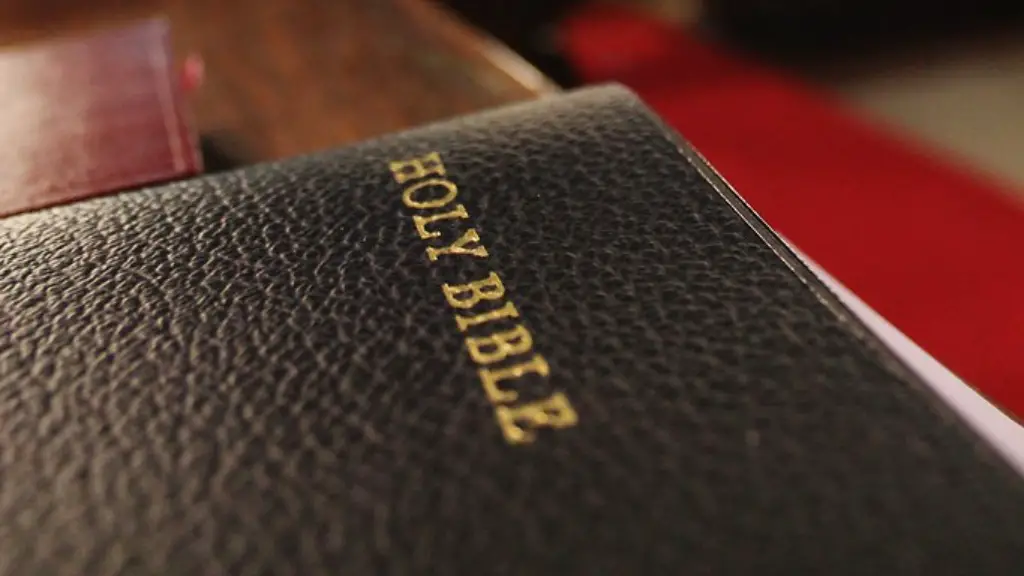What Is Circumcision?
Circumcision is an important religious and cultural ceremonial practice among Jews and Muslims, who consider it part of the Abrahamic Covenant. The Bible also references circumcision throughout its many books, referring to it as an act performed by men to signify belonging to the Jewish faith and to show obedience to God. In non-Jewish and non-Muslim communities, it is a medical procedure often seen as a way to reduce the potential spread of STIs and HIV.
Why Is Circumcision Mentioned In The Bible?
Circumcision plays an important role in the Bible as a sign of the Abrahamic Covenant. The Covenant, which was made between God and Abraham in Genesis 17:10-14, stipulates that every male must be circumcised in the flesh as a sign of the everlasting bond between God and man. This bond and circumcision are so important that any uncircumcised male who later desires to join the Jewish faith must still be circumcised to maintain the covenant and demonstrate their dedication to the Jewish faith.
What Details Are Included In The Bible About Circumcision?
The Bible makes reference to circumcision on several occasions. In Genesis 17:23, Abraham circumcised all of the male members of his household according to the Lord’s command. In Exodus 4:24-9 and Leviticus 12:3, Moses also commanded that all newborn Jewish boys be circumcised eight days after birth. According to Luke 2:21, Jesus himself was even circumcised.
The circumcision of Jewish males has also been mentioned in some of the most important documents in Jewish history, including the Mosaic Law, the Mishnah, and the Talmud.
Why Is Circumcision Important In The Bible?
Circumcision is viewed as an integral part of being a part of the Jewish faith. As the Abraham Covenant states, circumcision serves as a physical reminder of God’s promises to his people and serves to represent the faithful’s dedication to God.
The act also serves to unite Jews and bind them together as a community that shares a common covenant. It has been suggested by scholars that the main purpose of circumcision is actually more spiritual than physical, as it is meant to bind the faithful closer to God’s word and will.
What Are The Benefits Of Circumcision?
In addition to serving a religious purpose, circumcision is known to reduce the risk of sexually transmitted infections (STIs) and HIV. Circumcision is also recommended for medical purposes for those who suffer from certain medical conditions. It is thought to help reduce the risk of urinary tract infections, penile cancer, and even cervical cancer in women.
What Other Considerations Should Be Taken?
It is important to note that circumcision remains a contested religious practice amongst modern Jews and Muslims, with some believing that the act of cutting away the foreskin is cruel and painful. It is therefore important to research the risks and benefits of this procedure before deciding whether or not it is right for you or your child.
In What Ways Does Circumcision Reflect The Values Of The Bible?
The Bible values the importance of faith in God and dedication to His Word. For the Jewish community, circumcision is an outward symbol of the existence of God and a powerful reminder to stay true to the faith. Circumcision also serves as a reminder of the importance of maintaining the covenant between God and man, as well as a reminder of the many blessings and obligations that come with the covenant.
What Are The Disadvantages Of Circumcision?
Circumcision has been known to cause certain risks and complications such as excessive bleeding, infection, and even damage to the penis or the nerves surrounding it. Furthermore, circumcision is painful, even if done using anesthetic. This has caused some people to view circumcision as an unethical practice, as it can lead to a lot of pain and discomfort for the patient.
What Are The Alternative Practices To Circumcision?
In recent years, more and more people have started to look for alternatives to circumcision. Some cultures practice ritual circumcision without the removal of the foreskin, symbolizing the acceptance of God and the faith without actually requiring medical intervention. This practice is called hatafah, or “covenant of faith.”
For those who are looking for a non-surgical option, there are also some less-invasive treatments that provide similar benefits as circumcision. These treatments include laser treatments, cryotherapy, and topical treatments.
What Are The Implications Of Circumcision On Gender Equality?
The circumcision of newborn boys is a controversial topic because it has been linked to the oppression of women. Some argue that circumcision serves as a way to control female sexuality and limit women’s sexual autonomy.
Furthermore, some suggest that circumcision may be seen as a gender-biased practice. Since the practice is mainly focused on male children, this may create an unequal power dynamic between men and women, which could lead to a cycle of gender inequality in a given community.
What Are The Debates Surrounding Circumcision Of Newborns?
Medical organizations, such as the American Academy of Pediatrics, do not recommend routine circumcision for all newborns, as the procedure does carry certain risks. Additionally, there are some people who argue that this procedure should only be done on children who are old enough to give their own informed consent.
On the other hand, some argue that circumcision is necessary to ensure the health and safety of newborn boys, given that it reduces the risk of STIs and HIV. Furthermore, while circumcision may be seen as unethical by some, it is important to remember that it also has some positive cultural and religious implications that should be respected as well.
What Implications Does Circumcision Have In Modern Jewish Communities?
While circumcision is an important practice in the Jewish faith, the procedure is also becoming increasingly controversial in modern society. Some argue that since circumcision is a lifelong choice, the patient should be allowed to decide for themselves. Furthermore, some believe that the manner in which this procedure is conducted is damaging to the body, and that it should instead focus on providing the patient with positive experiences through prayer and traditional rituals.
In many parts of the world, some Jewish communities have begun to change the traditional customs around circumcision. These new approaches involve incorporating education and guidance around the procedure before it occurs, as well as minimizing any potential risks and complications.
How Does Circumcision Reflect Judaism In The Bible?
Circumcision is highly regarded in Judaism, serving as a reminder of the everlasting covenant between God and man. This practice is seen in several Bible passages, where it is used to signify obedience to the word of God and dedication to the faith.
Throughout history, Jews have viewed this practice as a sign of dedication to the Jewish faith, as well as a source of strength, identity, and unity. Furthermore, circumcision is known to reduce the potential spread of STIs and HIV, further protecting the health of the Jewish community as a whole.



